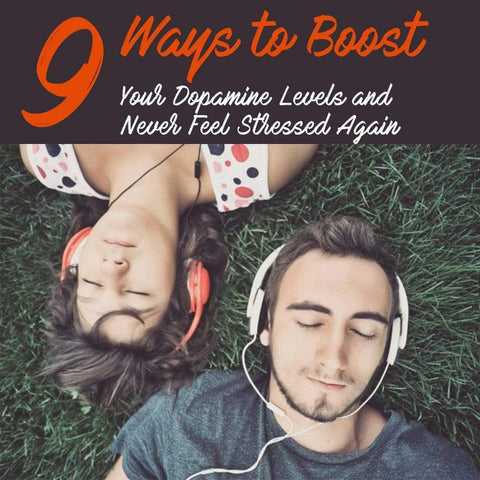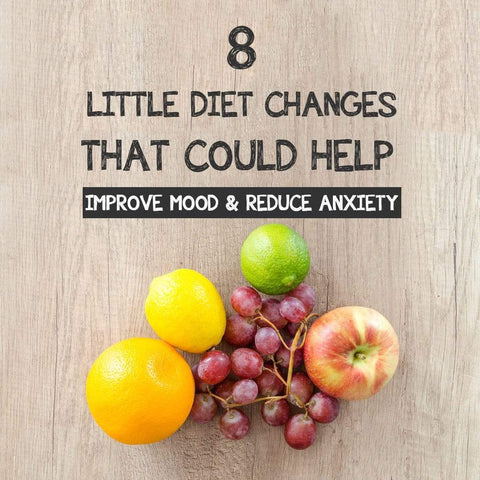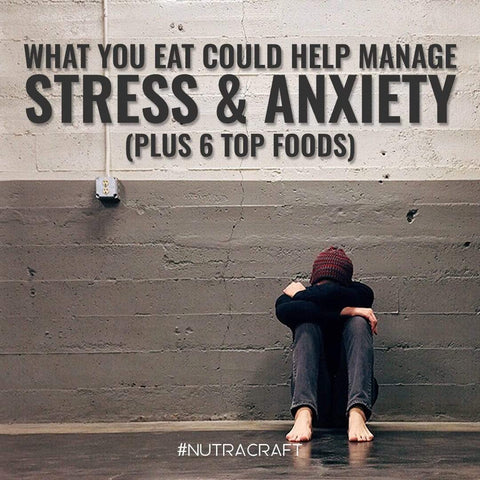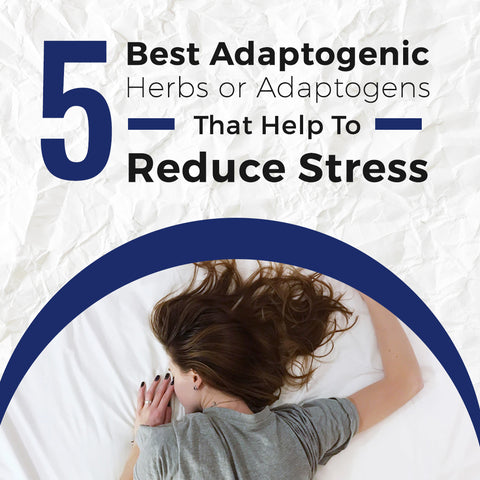
Sadness and depression are no joke. When we’re feeling low, we avoid friends, are sick more often, and tend to rely heavily on our bad habits. Would you believe it if someone told you that you could avoid, treat, and manage your sadness by increasing your brain’s dopamine levels?
Dopamine is a neurotransmitter found in all of our brains. It helps control our emotions and our habits, and it acts as a critical player in keeping our lives headed in the right direction. Dopamine is often thought of as a “reward chemical,” and this is because we feel amazing when our dopamine levels surge. Maintaining normal dopamine levels plays a critical role in staying happy and healthy.
Feeling bummed out? To boost your dopamine levels and put sadness in its place, try cutting out a few bad habits and implementing some new ones.
1. Exercise

If you’re anything like me, when you think about exercise, you think of long runs, screaming physical trainers, and unattainable goals. Looking at exercise this way keeps many of us from working out and getting a free boost of dopamine, and happiness, too. Exercise can take many forms—yoga, long walks, or weightlifting—and it increases your dopamine levels and releases serotonin and endorphins, too. Find a workout routine that you enjoy, make it a part of your daily routine, and start reaping the benefits.
2. Meditate
Life is so busy, and this lack of downtime often fills us with stress. We’re running late to work, rushing to pick up our kids, and hurrying home so that we can attempt to make some sort of healthy meal. With so little time in our days, the idea of finding a moment to meditate may seem impossible, but consider that some days we’re so busy and flustered that we wind up wasting loads of time. We search for things we’ve lost while distracted, or we neglect to get things done because we forgot about them while panicking about how busy we were! Taking a few minutes everyday to meditate helps charge our dopamine levels, calm our minds, and keep us focused.
Exclusive Bonus! Download the FREE report ‘How To Naturally Reduce Stress & Anxiety In 3 Simple Steps’ by clicking here.
3. Listen to Positive Music
Studies show that listening to music acts on the dopamine pathways in our brain, which gives us short-term boosts of dopamine. Music, much like alcohol or drugs, can be addicting, but it is certainly a better option for relief from sadness than turning to substance abuse. If you find music helps your mood, choose music that encourages action and positive life goals rather than music that encourages substance abuse or makes you feel sad in the long-term.
4. Get Plenty of B12 in Your Diet

Many people who are deficient in vitamin B12 often go to the doctor because they feel down, fatigued, or anxious. Some physicians may be quick to diagnose their patients with depression or anxiety before looking into their B12 levels, but this is just what they should be checking. One study found that anxiety and obsessive-compulsive disorder might be early manifestations of a deficiency in this vitamin. B12 works to promote the action of dopamine, so that dopamine present in your body works better! To ensure that you’re getting plenty of B12 in your diet, eat foods like fish, fortified cereals, and soy products, and dairy.
5. Eat Whole Foods with Tyrosine
While we’re talking about what to eat, consider choosing foods rich in tyrosine to boost your dopamine levels and your mood. Dopamine is created in our bodies when we eat tyrosine-containing foods like spirulina, seaweed, soy, and eggs. Tyrosine is an amino acid found in proteins after they’ve been broken down. It is essential in promoting optimum dopamine levels in our brains. While eating these foods, choose organic sources whenever possible. Organically raised foods will limit exposure to pesticides and other toxins, which may negatively interfere with dopamine levels.
6. Focus on Your Creativity
Synthetic dopamine medications are given to individuals suffering from Parkinson’s disease. Parkinson’s disease results in the degeneration of the nervous system, leading to lowered dopamine levels. Sometimes, when patients take this synthetic dopamine, they discover their creative side. Many researchers have asked if dopamine stimulates creativity or creativity stimulates dopamine. Results vary, but it seems that, at the very least, the creative process focuses our minds and allows us to de-stress, promoting a happier flow throughout the day.
7. Detoxify Your Life

It’s no secret that people with a higher exposure to environmental toxins, like pesticides, are at a greater risk for developing depression. We live in a world where we are often in contact with chemicals, and it can seem like a huge task to detoxify our lives. Step one? Stop ingesting them.
Start shopping in the organic section, and choose foods that are certified organic. Reduce your intake of processed foods. Whole, organic foods lack pesticides that may damage your neurotransmitters, including dopamine. Reduce the amount of meat that you eat, or quit eating it altogether. It is a common practice to feed livestock antibiotics and grain grown with numerous chemicals.
Continuing research reveals that gut health has a major impact on our mental health. Promote a healthy gastrointestinal tract by eating probiotic foods, like yogurt and nutritional yeast, and try a colon cleanse. Our colons can hold up to ten pounds of solid matter that may block our intestine’s ability to absorb nutrients and detoxify the foods we ingest daily.
8. Cut the Addictions
In the beginning of this article, I called dopamine the “reward chemical.” This is because dopamine feels amazing and is released after you’ve performed a certain activity, like long-distance running. When your brain becomes accustomed to the nice feeling, it forms a habit, urging you to put on your running shoes, time and time again.
Unfortunately, these habits can sometimes turn into addictions, especially when it comes to drugs, alcohol, or even checking your cellphone. Eventually, the more you engage in activities that are addictive, your brain becomes less sensitive to dopamine. This means that even if you have normal levels of dopamine in your body, you might not feel its effects.
How do you know if you’re addicted to something? Look for the warning signs: feeling out-of-control or anxious when you don’t feed the addiction, or noticing that it is disrupting your life. This could be drinking a few beers every night or feeling like you have to check your Instagram just one last time.
9. Make Supplements a Part of Your Lifestyle

Supplements have been used for centuries, although not always in pill form like today. Ancient people drank teas and mixed herbs with their foods to supercharge themselves, just as we’re looking to do these days.
There are many great supplements that will help you keep a robust mind and improve your mental health. Try ginkgo biloba to improve your mood. It works against the enzyme that breaks down dopamine, keeping it in your body longer. Glutamine is produced naturally by your body, but when you’re exposed to toxins or eating an unhealthy diet, you run the risk of interrupting its function.
Take a glutamine supplement, and it will act as a precursor to dopamine production, and enhance its effects too.
Better yet, choose a supplement that contains a blend of several mood-boosting elements. Ginkgo biloba and glutamine are important, but also include St. John’s Wort for depression and phosphatidylserine complex, which protects the integrity of the cell membranes in the brain.
Finding ways to cut out dopamine killers and add this reward chemical to your life will keep sadness in its place and guide you towards a more fulfilling life. Make easy changes first. Take a supplement and engage in pleasurable, healthy activities, and then tackle the more challenging ways to improve your neurological function once you have the easier steps down. Eat right, get plenty of sleep, and focus on those things that bring you the greatest joy. Creating happiness is the best way to put an end to sadness.
Dealing with unpredictable mood swings? High anxiety or stress?
You don’t have to resort to questionable anti-psychotic prescription drugs to find relief.
You can help calm your body naturally by following some simple lifestyle changes and eating the right kinds of foods.
What are they?
Click here to download the FREE report which reveals an easy-to-follow 3-step process toward reducing stress, calming anxiety and eliminating mood swings and irritability.









